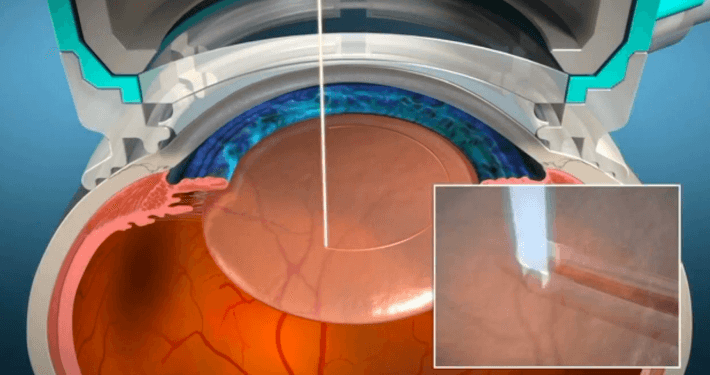Herpes Keratitis
The herpes simplex virus is caused a virus that causes painful blisters that are usually filled with fluid. The two main type of herpes are herpes simplex I and herpes simplex II. Herpes simplex I tends to cause cold sores and fever blisters and is most commonly responsible for causing herpes infections in the eye. It’s very rare for an eye infection or ulcers near the eyelid to be caused by the herpes simplex II virus. The duration of the infection may last several days or weeks. After the initial infection, you may not experience another one for months or even years. The infection tends to reappear when the immune system is weakened as a result of stress or disease.
Symptoms of an Infection
Our eye doctor sees patients who have a herpes simplex eye infection and have blisters on or near the eyelid. The eye itself may appear red or irritated. Patients regularly state to their ophthalmology specialist that they’re experiencing tearing or a sensitivity to light. It’s not uncommon for the patient to have blurred vision. It’s possible for the infection to be active, but you won’t have any symptoms.
Contracting Herpes Keratitis
Usually, herpes simplex I is spread through the fluid inside of a person’s mouth. You may get the infection from too much exposure to the sun. If you have a high fever, you can contract a herpes eye infection. Emotional stress triggers it and so does fever, foods, medicines or an eye injury.
Diagnosing Herpes Keratitis
In some cases, a herpes simplex infection will have the same symptoms as other viruses or allergies. To diagnose the problem, our surgeons will ask you questions related to your medical history. We’ll examine your skin and eyes to determine if we can visually assess the problem. We may acquire a sample of the fluid from one of the blisters, so we can send it to lab to have it analyzed.
Treatments
Our ophthalmology experts at Texas Eye Surgeons may not need to treat the problem because some infections heal on their own. We may prescribe an ointment that kills the virus before it does corneal damage. We may speed up the recovery process by scraping away the blisters by using a cotton swab. It’s possible we may need to prescribe an oral medication to kill the virus. An optometrist may prescribe corticosteroids to prevent serious complications. In severe cases, one of our surgeons may need a corneal replacement via surgery.
Schedule an Appointment with Texas Eye Surgeons
If you have symptoms of the herpes simplex virus in your eye, contact our eye surgery experts to schedule an appointment at Texas Eye Surgeons, serving Plano, Dallas TX and the surrounding Texas areas, by calling us at (972) 379-3937.
Eye Conditions
6 Common Vision Problems and How to Fix Them
Sooner or later, just about all of us will need the services…













